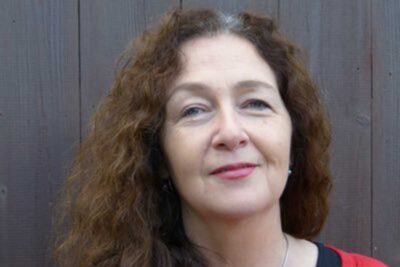Cathy Galvin
After a career in journalism where she launched The Sunday Times Short Story Award, Cathy Galvin (MA Writing, 2015) came to Warwick to explore her interest in short stories and discovered a love of poetry. She now helps other authors through her company, Word Factory.

What does the Word Factory mean to you?
Word Factory creates literary excellence and long-term relationships to support the next generation of short story writers. To do this we run short story masterclasses, readings and events. I introduced short stories to The Sunday Times Magazine and launched The Sunday Times Short Story Award. The segment became popular with readers. My interest in short stories grew and I was inspired to set up the Word Factory in a small bookshop in Soho, London. I invited writers I knew to come and read their work.
This year, we’re planning a festival to celebrate our ten-year anniversary, so we’d love to hear from other Warwick graduates who are short story writers.
Why did you choose to study your MA in Warwick?
After a career in journalism, I wanted to pursue my interest in short stories. I wanted to reconnect with my home city of Coventry and create new memories.
I certainly reconnected with my Coventry roots when creating my poetry publication, Walking the Coventry Ring Road with Lady Godiva, where Lady Godiva guides the reader along the titular road, circling the medieval city boundaries through demolition and bomb sites, past graveyards and Epstein’s angel in the cathedral, over rivers and monasteries. And Professor Emma Mason used the book for a reading during Coventry City of Culture.
What role do books have in modern-day society?
Books and stories provide the opportunity to remind people of how imaginative and truthful language is, especially as we tend to consume the world in bitesize pieces of information. Stories help us express nuanced feelings and provide thoughtful spaces.
What are your best memories of Warwick?
I had a fascinating time at Warwick. I remember Professor David Morley taking the class out into the woods to sit and listen and write down what we saw and heard. You had to shed your self-consciousness, declare what you felt, listen to the rhyme and rhythm in what you’re feeling, be bold and let it out. I also remember being presented with play swords to use while talking about poetry. It made you lose your inhibitions and speak.
What role does poetry play in the modern world?
Poetry is at the heart of great literature. The way it informs the imagination and the spirit has a part in creating a culture and I’m thrilled that poetry is becoming more accessible and diverse.
